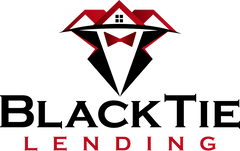|
Fix and flip projects are a popular way to invest in real estate. These projects involve purchasing a property that needs renovations, making the necessary repairs, and then selling the property for a profit. However, funding for these projects can be challenging to obtain, which is where hard money loans come in. In this blog post, we will explore the pros and cons of using hard money loans for fix and flip projects.
Pros:
Speed of Funding: Hard money lenders can provide funding much faster than traditional lenders, which is essential in a fix and flip project. The faster you can secure the funds, the quicker you can start on the project, and the sooner you can sell the property.
Flexible Terms: Hard money loans have more flexible terms than traditional loans, which means that they can be tailored to meet your specific needs. This is especially helpful in a fix and flip project where you may need more money upfront for renovations, but then pay back the loan quickly when the property is sold.
Credit Score Requirements: Hard money lenders are primarily concerned with the value of the property and your ability to repay the loan, rather than your credit score. This means that you can still qualify for a hard money loan, even if you have a low credit score.
Property Value: Hard money lenders are more interested in the value of the property than your credit score or income. This means that if you have a valuable property, you are more likely to be approved for a hard money loan.
Cons:
High Interest Rates: Hard money loans typically have higher interest rates than traditional loans. This is because they are riskier for the lender, and they are providing funding much faster than traditional lenders. This can add up to a significant amount of money over the course of the loan.
Short Repayment Terms: Hard money loans typically have much shorter repayment terms than traditional loans. This means that you will need to sell the property quickly to pay off the loan. If the property does not sell within the repayment term, you may need to refinance the loan, which can be costly.
Fees: Hard money lenders often charge additional fees, such as origination fees, application fees, and underwriting fees. These fees can add up quickly and increase the cost of the loan.
Risk of Losing the Property: Hard money loans are secured by the property, which means that if you default on the loan, the lender can foreclose on the property. This is a significant risk in a fix and flip project, as unexpected issues can arise during the renovation process.
In conclusion, using hard money loans for fix and flip projects has its pros and cons. While hard money loans can provide quick funding with flexible terms, they also come with high-interest rates, short repayment terms, and additional fees. As an investor, it is essential to carefully consider the risks and benefits of using hard money loans before making a decisions.
0 Comments
Leave a Reply. |
AuthorRod Hanks Archives
October 2023
Categories |

 RSS Feed
RSS Feed